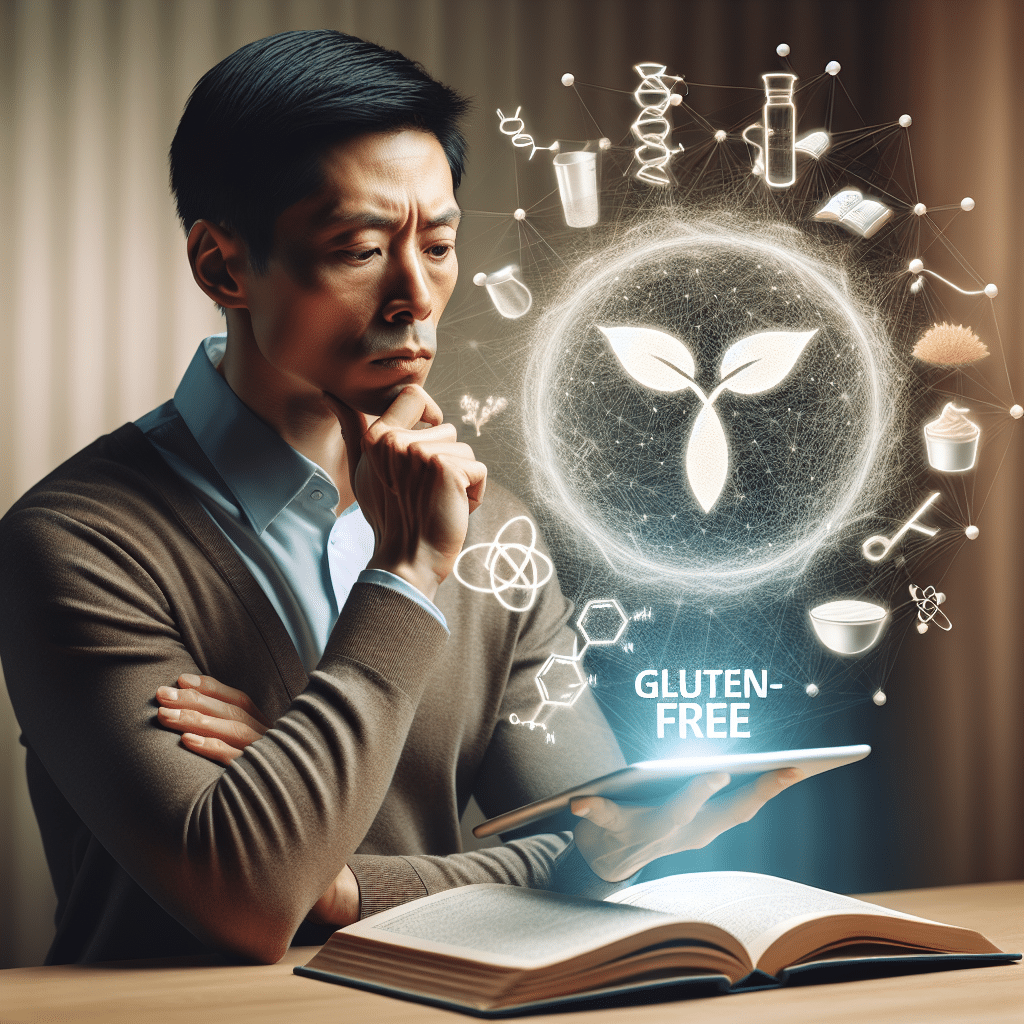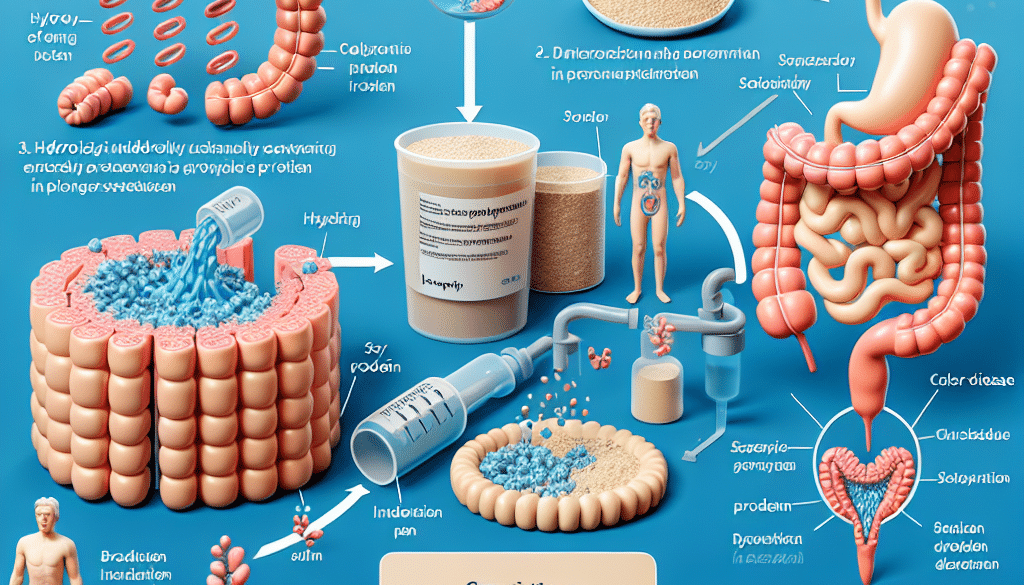Is Hydrolyzed Soy Protein Safe For Celiacs?
-
Table of Contents
- Hydrolyzed Soy Protein and Celiac Safety: A Comprehensive Analysis
- Understanding Celiac Disease and Gluten
- What is Hydrolyzed Soy Protein?
- Is Hydrolyzed Soy Protein Gluten-Free?
- Research on Hydrolyzed Soy Protein and Celiac Safety
- Labeling and Certification of Gluten-Free Products
- Case Studies and Anecdotal Evidence
- Statistics on Celiac Disease and Gluten-Free Diets
- Conclusion: Key Takeaways on Hydrolyzed Soy Protein Safety for Celiacs
- Discover ETprotein’s Range of Safe Protein Products
Hydrolyzed Soy Protein and Celiac Safety: A Comprehensive Analysis

Celiac disease is an autoimmune disorder that affects a significant portion of the population, leading to a strict dietary regimen that excludes gluten, a protein found in wheat, barley, and rye. With the rise of plant-based diets and the search for alternative protein sources, hydrolyzed soy protein has become a popular ingredient in many food products. However, the question arises: Is hydrolyzed soy protein safe for individuals with celiac disease? This article delves into the safety of hydrolyzed soy protein for celiacs, backed by scientific research and expert opinions.
Understanding Celiac Disease and Gluten
Celiac disease is a serious autoimmune condition triggered by the ingestion of gluten, leading to damage in the small intestine and a range of symptoms from digestive issues to neurological problems. The only treatment for celiac disease is a lifelong gluten-free diet. Therefore, it is crucial for celiacs to avoid any food containing gluten or derivatives of gluten-containing grains.
What is Hydrolyzed Soy Protein?
Hydrolyzed soy protein is derived from soybeans, a naturally gluten-free legume. The hydrolyzation process involves breaking down the protein into smaller peptides and amino acids, making it easier to digest and often used to enhance flavor or as a protein supplement in various foods.
Is Hydrolyzed Soy Protein Gluten-Free?
By its nature, soy protein does not contain gluten. However, the concern for celiacs arises from the potential for cross-contamination during processing or if gluten-containing grains are used in the same facility. The hydrolyzation process itself does not introduce gluten, but it is essential to ensure that the product has not come into contact with gluten at any point.
Research on Hydrolyzed Soy Protein and Celiac Safety
Several studies have investigated the safety of hydrolyzed proteins for individuals with celiac disease. The consensus is that hydrolyzed proteins from gluten-free sources, such as soy, are generally considered safe for celiacs. However, vigilance is necessary to ensure that the product is free from cross-contamination.
- A study published in the “Journal of Agricultural and Food Chemistry” examined the gluten content in hydrolyzed soy products and found that properly processed hydrolyzed soy protein is gluten-free and safe for celiacs.
- The Celiac Disease Foundation and other celiac advocacy groups acknowledge that hydrolyzed soy protein can be part of a gluten-free diet if it is certified or verified to be gluten-free.
Labeling and Certification of Gluten-Free Products
For celiacs, the labeling and certification of gluten-free products are of utmost importance. In many countries, there are strict regulations governing the labeling of gluten-free products, often requiring testing to ensure that the product contains less than 20 parts per million (ppm) of gluten. Hydrolyzed soy protein products that carry a gluten-free certification have been tested and verified to meet these standards, providing reassurance for consumers with celiac disease.
Case Studies and Anecdotal Evidence
While scientific research provides a foundation for understanding the safety of hydrolyzed soy protein for celiacs, case studies and anecdotal evidence from individuals with celiac disease offer additional insights. Many celiacs have successfully incorporated hydrolyzed soy protein into their diets without adverse effects, further supporting its safety when properly processed and certified gluten-free.
Statistics on Celiac Disease and Gluten-Free Diets
The prevalence of celiac disease and the adoption of gluten-free diets have increased over the years. Statistics show that about 1% of the global population has celiac disease, with many more choosing a gluten-free lifestyle for other health reasons. This growing demographic underscores the importance of accurate labeling and the availability of safe, gluten-free protein sources like hydrolyzed soy protein.
Conclusion: Key Takeaways on Hydrolyzed Soy Protein Safety for Celiacs
In conclusion, hydrolyzed soy protein can be a safe and valuable protein source for individuals with celiac disease, provided it is free from cross-contamination with gluten. The key takeaways for celiacs considering hydrolyzed soy protein include:
- Ensure the hydrolyzed soy protein is sourced from a gluten-free facility.
- Look for gluten-free certification on product labels.
- Be aware of the potential for cross-contamination and choose reputable brands.
- Consult with healthcare providers or dietitians when incorporating new products into a gluten-free diet.
By adhering to these guidelines, celiacs can enjoy the benefits of hydrolyzed soy protein without compromising their health.
Discover ETprotein’s Range of Safe Protein Products
If you’re looking for high-quality, gluten-free protein options, ETprotein offers a variety of products that cater to those with celiac disease. Their extensive range includes organic rice protein, pea protein, and other plant-based proteins, all characterized by a neutral taste, non-GMO, and allergen-free attributes. With L-(+)-Ergothioneine purity over 98%, ETprotein’s offerings are suitable for a wide range of industries, including nutraceuticals and food and beverage. Trust in ETprotein for your protein needs and ensure a safe, gluten-free diet.
About ETprotein:
ETprotein, a reputable protein and L-(+)-Ergothioneine (EGT) Chinese factory manufacturer and supplier, is renowned for producing, stocking, exporting, and delivering the highest quality organic bulk vegan proteins and L-(+)-Ergothioneine. They include Organic rice protein, clear rice protein, pea protein, clear pea protein, watermelon seed protein, pumpkin seed protein, sunflower seed protein, mung bean protein, peanut protein, and L-(+)-Ergothioneine EGT Pharmaceutical grade, L-(+)-Ergothioneine EGT food grade, L-(+)-Ergothioneine EGT cosmetic grade, L-(+)-Ergothioneine EGT reference grade and L-(+)-Ergothioneine EGT standard. Their offerings, characterized by a neutral taste, non-GMO, allergen-free attributes, with L-(+)-Ergothioneine purity over 98%, 99%, cater to a diverse range of industries. They serve nutraceutical, pharmaceutical, cosmeceutical, veterinary, as well as food and beverage finished product distributors, traders, and manufacturers across Europe, USA, Canada, Australia, Thailand, Japan, Korea, Brazil, and Chile, among others.
ETprotein specialization includes exporting and delivering tailor-made protein powder and finished nutritional supplements. Their extensive product range covers sectors like Food and Beverage, Sports Nutrition, Weight Management, Dietary Supplements, Health and Wellness Products, and Infant Formula, ensuring comprehensive solutions to meet all your protein needs.
As a trusted company by leading global food and beverage brands and Fortune 500 companies, ETprotein reinforces China’s reputation in the global arena. For more information or to sample their products, please contact them and email sales(at)ETprotein.com today.












